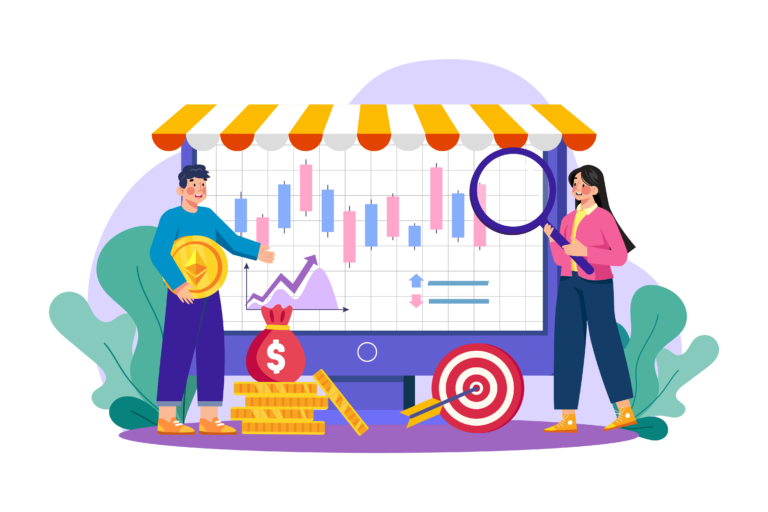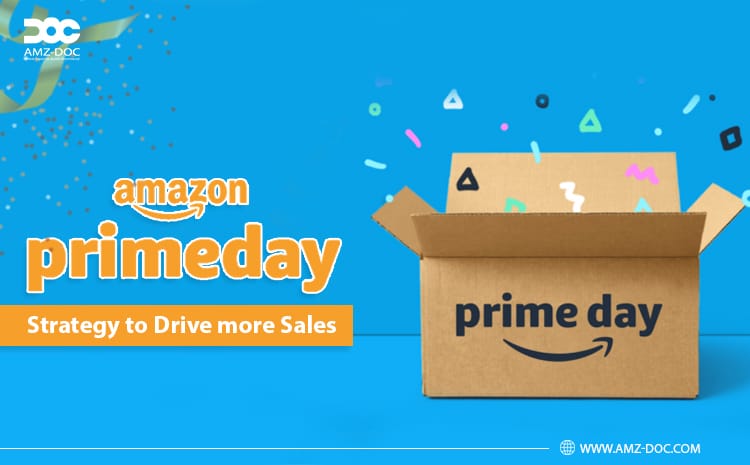Explore Our Product Launching Service – Learn More
Explore Our Product Launching Service – Learn More

In today’s fast-paced digital world, marketplaces have become the go-to destination for consumers and businesses alike. From e-commerce giants like Amazon and Alibaba to niche platforms catering to specific industries, the evolution of marketplaces has been nothing short of extraordinary. But what factors have propelled their rapid growth?
In this article, we’ll delve into the key elements that have shaped these dynamic platforms and explore how they have transformed the way we buy and sell. From the convenience and accessibility offered to consumers to the vast opportunities for sellers to reach a global audience, marketplaces have revolutionized the way commerce is conducted. We’ll also examine the impact of technological advancements, changing consumer behavior, and the rise of the gig economy on the expansion of marketplaces.
Join us as we uncover the fascinating journey of these online ecosystems and discover the secrets behind their unprecedented growth.
Marketplaces have existed for centuries, dating back to ancient times when people gathered in bustling bazaars to trade goods and services. These early marketplaces served as central hubs for commerce, connecting buyers and sellers from different regions and facilitating the exchange of a wide variety of products. Over time, marketplaces evolved to meet the changing needs of society. From the development of physical marketplaces in cities to the emergence of catalog-based mail-order businesses, the concept of bringing buyers and sellers together has always been at the heart of marketplaces.
The rise of the internet in the late 20th century paved the way for a new era of marketplaces. Online marketplaces started to emerge, offering a convenient and accessible way for people to buy and sell products and services without the limitations of physical boundaries. Platforms like eBay and Craigslist were among the pioneers in this space, allowing individuals to connect and transact with ease. These early online marketplaces laid the foundation for the explosive growth we see today.
The advent of the internet also brought about a shift in consumer behavior. With the ability to research products and compare prices at their fingertips, consumers gained more power and control over their purchasing decisions. This shift in power dynamics created a demand for marketplaces that offered a wide range of choices and competitive prices. As a result, online marketplaces experienced a surge in popularity, attracting both buyers and sellers looking for greater convenience and better deals.
Several key factors have contributed to the rapid growth of marketplaces in recent years. One of the primary drivers is the advancement of technology. The proliferation of smartphones, improved internet connectivity, and the development of secure online payment systems have made it easier than ever to participate in online marketplaces. With just a few taps on their mobile devices, consumers can browse, compare, and purchase products from a wide array of sellers, all from the comfort of their own homes. This level of convenience has been a game-changer, attracting a significant number of consumers to embrace the marketplace model.
Furthermore, the rise of the gig economy has played a crucial role in the expansion of marketplaces. As more people turn to freelance or gig work, marketplaces provide a platform for individuals to monetize their skills and services. Whether it’s offering graphic design services, renting out a spare room, or providing transportation through ride-sharing apps, marketplaces have created new income opportunities for individuals seeking flexible work arrangements. This influx of sellers has contributed to the growth and diversity of marketplaces, offering consumers a vast selection of products and services to choose from.
Another factor driving the growth of marketplaces is the emphasis on trust and reputation. In a digital environment where buyers and sellers may never meet face-to-face, trust becomes a critical element in facilitating transactions. Marketplaces have implemented various mechanisms to establish trust, such as user reviews and ratings, seller verification processes, and dispute resolution systems. These measures help build confidence among buyers and sellers, encouraging them to participate in transactions with the assurance that they will be protected from fraud or other risks.
Technological advancements have been instrumental in shaping the growth and success of marketplaces. The development of sophisticated algorithms and machine learning capabilities has enabled marketplaces to provide personalized recommendations to users, enhancing the overall user experience. By analyzing user data and preferences, marketplaces can suggest relevant products or services, making it easier for consumers to discover new offerings and sellers to reach their target audience.
Additionally, advancements in logistics and fulfillment services have made it possible for marketplaces to offer fast and reliable shipping options. By partnering with logistics providers or establishing their own fulfillment networks, marketplaces can ensure that products are delivered to customers in a timely manner. This improved delivery experience has further boosted consumer confidence in marketplaces, as they can rely on efficient and hassle-free shipping.
Furthermore, the integration of artificial intelligence and chatbot technology has revolutionized customer support in marketplaces. Gone are the days of waiting on hold for a representative to address a query or concern. AI-powered chatbots can now provide instant assistance, answering common questions and resolving issues in real-time. This 24/7 support not only improves customer satisfaction but also allows marketplaces to handle a high volume of inquiries efficiently.
Trust and reputation are vital components of any successful marketplace. In an online environment where buyers and sellers may have no prior relationship, establishing trust is essential to facilitate transactions. Marketplaces have implemented various strategies to foster trust among their users. User reviews and ratings provide valuable feedback on sellers’ reliability and product quality, helping consumers make informed decisions. Additionally, marketplaces often verify sellers’ identities and employ fraud detection systems to protect buyers from potential scams.
A strong reputation is also crucial for sellers on marketplaces. Positive reviews and high ratings can significantly impact a seller’s success, as they serve as social proof of their credibility and reliability. Building a positive reputation requires consistently delivering high-quality products or services and providing excellent customer service. Marketplaces that prioritize trust and reputation create an environment where buyers and sellers feel secure, fostering a thriving ecosystem.
The widespread adoption of smartphones and the rise of social media have had a profound impact on the growth of marketplaces. Mobile devices have become an integral part of our daily lives, enabling us to access marketplaces anytime, anywhere. Consumers can browse and make purchases on the go, while sellers can manage their listings and respond to inquiries with ease. The convenience and accessibility offered by mobile devices have contributed to the exponential growth of marketplaces, as they cater to the increasingly mobile-centric lifestyles of consumers.
Social media platforms have also played a significant role in marketplace growth. With billions of users worldwide, platforms like Facebook, Instagram, and Pinterest have become powerful marketing tools for sellers. They provide opportunities for sellers to showcase their products or services, engage with customers, and drive traffic to their marketplace listings. Social media influencers have also emerged as key players, leveraging their large followings to promote products and generate sales. The integration of social media and marketplaces has created a seamless experience for users, allowing them to discover and purchase products directly within their social feeds.
User experience is a critical factor in the success of marketplaces. With thousands of options available, consumers have high expectations when it comes to the ease of use, navigation, and overall design of a marketplace platform. A seamless and intuitive user interface can significantly impact a user’s decision to engage with a marketplace and make repeat purchases. Marketplaces that prioritize user experience invest in user-centered design, conducting extensive user research and testing to ensure that their platforms meet the needs and preferences of their target audience.
Efficient search and filtering capabilities are essential for users to find the products or services they are looking for quickly. Intuitive navigation and clear product descriptions provide users with the information they need to make informed decisions. Additionally, a streamlined checkout process that supports various payment options enhances the overall user experience, reducing friction and increasing conversion rates.
Marketplaces that excel in user experience often invest in personalized recommendations and tailored content. By analyzing user behavior and preferences, marketplaces can deliver relevant and targeted recommendations, making it easier for users to discover new products or services of interest. Personalization creates a more engaging and customized experience, increasing user satisfaction and loyalty.
To understand the factors behind the rapid growth of marketplaces, let’s take a look at two successful platforms: Amazon and Airbnb.
Amazon, founded in 1994 as an online bookstore, has transformed into a global e-commerce giant. One of the key factors behind Amazon’s success is its relentless focus on customer experience. The company has revolutionized the way consumers shop by offering a vast selection of products, competitive prices, and fast shipping options. Amazon’s user-friendly interface, personalized recommendations, and customer reviews have made it the marketplace of choice for millions of consumers worldwide.
Airbnb, founded in 2008, has disrupted the hospitality industry by connecting travelers with unique accommodations offered by individual hosts. By leveraging the sharing economy model, Airbnb has created a platform that offers a wide range of options, from budget-friendly stays to luxury properties. The success of Airbnb can be attributed to its emphasis on trust and reputation. Hosts and guests on the platform are encouraged to leave reviews and ratings, creating a transparent and trustworthy environment. Airbnb’s user-centric design and personalized recommendations also contribute to a seamless and enjoyable user experience.
While marketplaces have experienced tremendous growth, they are not without challenges. One of the main challenges faced by marketplaces is ensuring the quality and authenticity of products or services offered by sellers. Maintaining a high standard of quality across a diverse range of offerings can be a daunting task. Marketplaces must implement robust vetting processes, monitoring mechanisms, and seller education programs to safeguard against counterfeit or subpar products.
Another challenge is striking a balance between the needs of buyers and sellers. Marketplaces must provide a fair and transparent platform that benefits both parties. Balancing seller fees, commission structures, and customer support can be a delicate task. Additionally, marketplaces must address issues such as fake reviews, seller fraud, and customer disputes promptly and effectively to maintain trust and reputation.
Looking ahead, several trends are poised to shape the future of the marketplace industry. One of the emerging trends is the integration of augmented reality (AR) and virtual reality (VR) technologies. These technologies have the potential to revolutionize the way consumers shop by allowing them to visualize products in a virtual environment. AR and VR can enhance the online shopping experience, enabling consumers to try on clothes, test furniture in their homes, or experience travel destinations before making a purchase.
Another trend is the increasing focus on sustainability and ethical practices. Consumers are becoming more conscious of the environmental and social impact of their purchasing decisions. Marketplaces that prioritize sustainability, fair trade, and responsible sourcing are likely to gain a competitive edge. Collaborations with eco-friendly brands, offering sustainable alternatives, and implementing recycling or donation programs are some ways marketplaces can address this growing concern.

The growth of marketplaces has been fueled by a combination of technological advancements, changing consumer behavior, and the rise of the gig economy. The convenience, accessibility, and vast opportunities offered by marketplaces have transformed the way we buy and sell. Technological innovations have facilitated seamless transactions, personalized recommendations, and efficient logistics. Trust and reputation have played a crucial role in establishing marketplace success, while mobile and social media have expanded their reach. User experience has become a key differentiator, and marketplaces that prioritize it have gained a competitive advantage.
As the marketplace industry continues to evolve, challenges related to product quality, fair practices, and customer satisfaction will need to be addressed. However, with emerging trends like AR/VR integration and a focus on sustainability, marketplaces have the potential to further revolutionize commerce and redefine the way we interact with goods and services. The journey of marketplaces is far from over, and we can expect to witness even more exciting developments in the years to come.








